
Millennials, also known as Gen Y, are the demographic cohort born between 1981 and 1996. Ranging in age from 25 to 40, they were the first generation to come of age with the Internet and social media, but have also lived through the 9/11 attacks, the War on Terror, the Great Recession, protest movements such as Occupy Wall Street and Black Lives Matter, and the COVID-19 pandemic.
The ways in which COVID changed life in America — among other things bringing a significant portion of the workforce the ability to telecommute — have encouraged some millennials to reassess where and how they want to live. In addition, many now have or are planning families and want to make the best decisions for their children as well as themselves. These are 50 ways American life has changed in the last decade.
For those who want to make a move, some destinations are more hospitable than others. 24/7 Tempo has developed a list of the best and worst states for millennials, using data compiled by the credit reporting and advice site WalletHub. The site compared states across five key dimensions: affordability; education and health; quality of life; economic health; and civic engagement. The dimensions were evaluated using 34 variously weighted metrics, including everything from singles- and family-friendliness to share of millennial smokers and binge drinkers to average earnings and labor force participation rate grown for members of the generation.
The best and second-best states, according to the data, are Washington and Utah, which rank No. 1 for affordability and economic health, respectively. Washington is home to companies such as Starbucks and Microsoft, and its largest city, Seattle, is known for quality of life and civic engagement. Utah has a diversified economy covering industries such as tourism, mining, energy, agriculture, and information technology. These are the states with the best and worst economies.
Click here to see the best and worst states for millennials
At the other end of the list are West Virginia and New Mexico. The former is situated in the rust belt and has traditionally been dependent on the out-of-favor coal mining industry. The latter is home to such attractive places as Santa Fe and Taos, but may be a victim of its success in attracting residents, as it scores poorly for affordability.

50. West Virginia
> WalletHub score: 32.48
> Top metric: Affordability (#25 best in the nation)
> Millennials: 318,773 — 12th fewest
[in-text-ad]

49. New Mexico
> WalletHub score: 35.15
> Top metric: Affordability (#40 best in the nation)
> Millennials: 420,181 — 15th fewest

48. Mississippi
> WalletHub score: 36.80
> Top metric: Civic Engagement (#21 best in the nation)
> Millennials: 558,856 — 16th fewest

47. Nevada
> WalletHub score: 39.74
> Top metric: Economic Health (#30 best in the nation)
> Millennials: 666,061 — 21st fewest
[in-text-ad-2]

46. Louisiana
> WalletHub score: 41.26
> Top metric: Affordability (#24 best in the nation)
> Millennials: 969,170 — 24th most

45. Arkansas
> WalletHub score: 41.36
> Top metric: Affordability (#26 best in the nation)
> Millennials: 577,184 — 18th fewest
[in-text-ad]

44. Kentucky
> WalletHub score: 43.09
> Top metric: Affordability (#11 best in the nation)
> Millennials: 854,727 — 24th fewest

43. Alabama
> WalletHub score: 43.76
> Top metric: Affordability (#17 best in the nation)
> Millennials: 944,541 — 25th most

42. South Carolina
> WalletHub score: 43.97
> Top metric: Affordability (#21 best in the nation)
> Millennials: 995,900 — 23rd most
[in-text-ad-2]

41. Rhode Island
> WalletHub score: 45.43
> Top metric: Education & Health (#4 best in the nation)
> Millennials: 216,592 — 8th fewest

40. Delaware
> WalletHub score: 45.66
> Top metric: Education & Health (#20 best in the nation)
> Millennials: 184,440 — 6th fewest
[in-text-ad]

39. Alaska
> WalletHub score: 46.73
> Top metric: Civic Engagement (#8 best in the nation)
> Millennials: 167,071 — 3rd fewest

38. Oklahoma
> WalletHub score: 47.02
> Top metric: Affordability (#19 best in the nation)
> Millennials: 801,484 — 23rd fewest

37. Hawaii
> WalletHub score: 47.30
> Top metric: Education & Health (#3 best in the nation)
> Millennials: 297,193 — 11th fewest
[in-text-ad-2]

36. Wyoming
> WalletHub score: 47.42
> Top metric: Affordability (#29 best in the nation)
> Millennials: 113,603 — 2nd fewest

35. Maine
> WalletHub score: 47.84
> Top metric: Civic Engagement (#1 best in the nation)
> Millennials: 241,825 — 9th fewest
[in-text-ad]

34. Maryland
> WalletHub score: 49.09
> Top metric: Education & Health (#7 best in the nation)
> Millennials: 1,235,942 — 19th most

33. Connecticut
> WalletHub score: 49.71
> Top metric: Education & Health (#5 best in the nation)
> Millennials: 661,067 — 20th fewest

32. Montana
> WalletHub score: 49.91
> Top metric: Economic Health (#15 best in the nation)
> Millennials: 201,386 — 7th fewest
[in-text-ad-2]

31. Indiana
> WalletHub score: 50.35
> Top metric: Affordability (#15 best in the nation)
> Millennials: 1,299,852 — 18th most
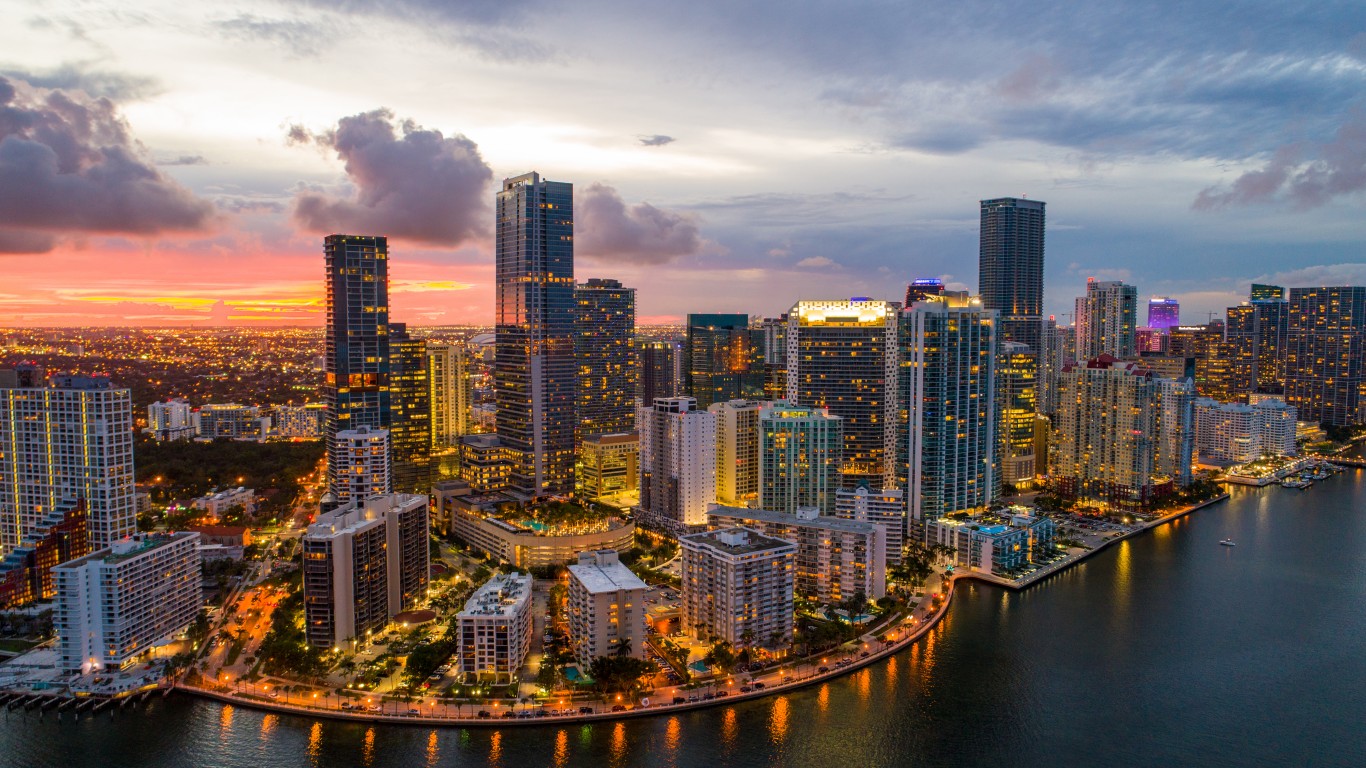
30. Florida
> WalletHub score: 50.46
> Top metric: Economic Health (#14 best in the nation)
> Millennials: 4,108,725 — 4th most
[in-text-ad]

29. Vermont
> WalletHub score: 50.50
> Top metric: Education & Health (#6 best in the nation)
> Millennials: 112,136 — the fewest

28. Arizona
> WalletHub score: 50.56
> Top metric: Economic Health (#12 best in the nation)
> Millennials: 1,459,119 — 14th most
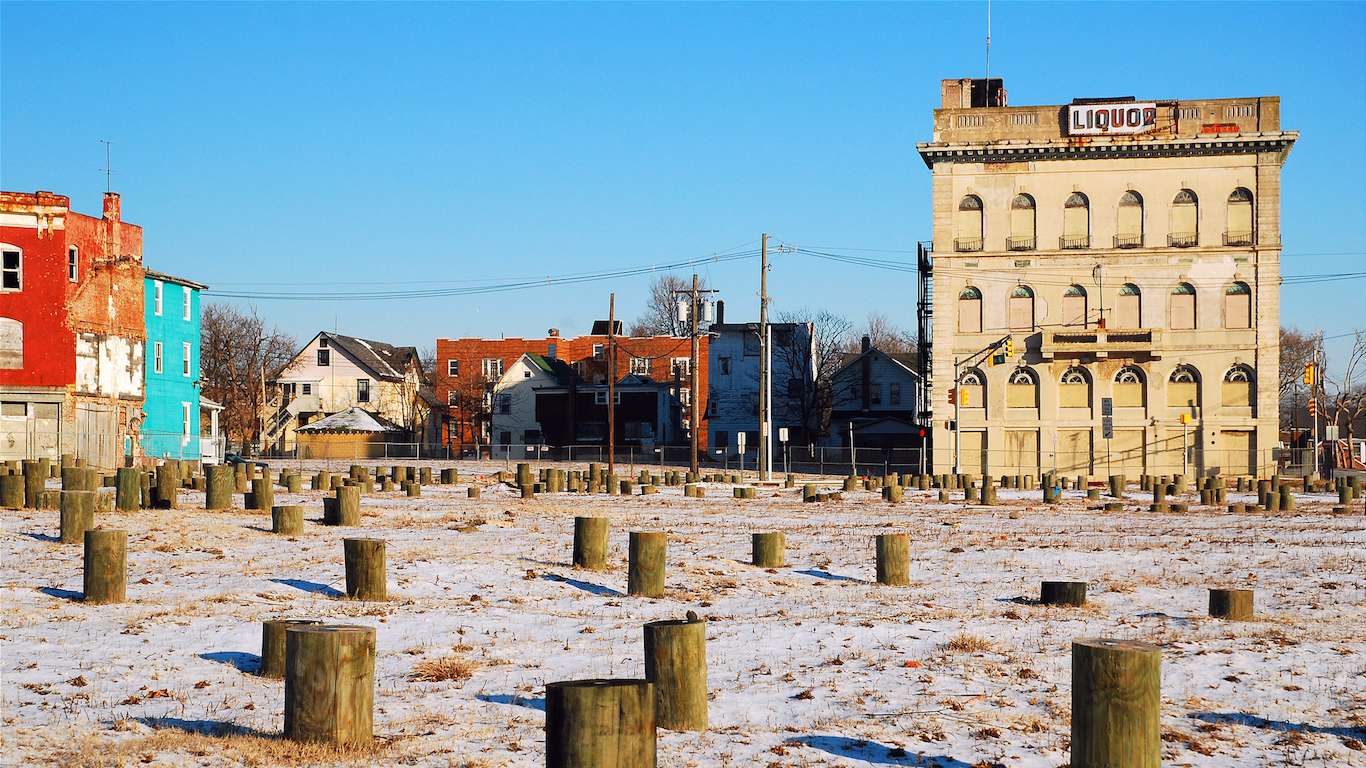
27. New Jersey
> WalletHub score: 50.61
> Top metric: Education & Health (#8 best in the nation)
> Millennials: 1,725,299 — 12th most
[in-text-ad-2]

26. Georgia
> WalletHub score: 50.73
> Top metric: Affordability (#14 best in the nation)
> Millennials: 2,172,009 — 8th most

25. Tennessee
> WalletHub score: 51.48
> Top metric: Affordability (#13 best in the nation)
> Millennials: 1,361,866 — 16th most
[in-text-ad]

24. Idaho
> WalletHub score: 51.62
> Top metric: Economic Health (#3 best in the nation)
> Millennials: 351,301 — 13th fewest

23. North Carolina
> WalletHub score: 52.54
> Top metric: Civic Engagement (#10 best in the nation)
> Millennials: 2,058,843 — 9th most

22. New Hampshire
> WalletHub score: 54.14
> Top metric: Economic Health (#6 best in the nation)
> Millennials: 250,305 — 10th fewest
[in-text-ad-2]
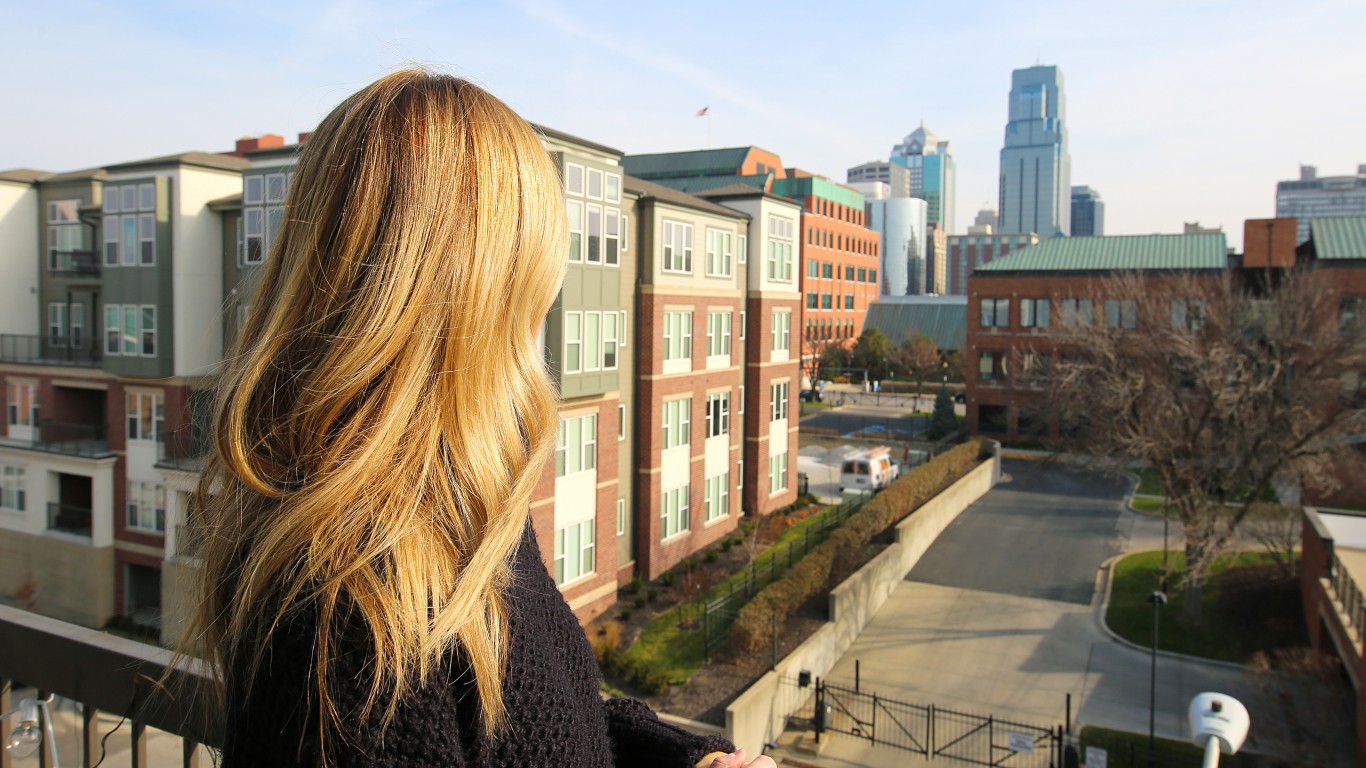
21. Kansas
> WalletHub score: 54.55
> Top metric: Economic Health (#9 best in the nation)
> Millennials: 573,705 — 17th fewest

20. Ohio
> WalletHub score: 54.94
> Top metric: Affordability (#9 best in the nation)
> Millennials: 2,265,875 — 7th most
[in-text-ad]

19. Missouri
> WalletHub score: 55.03
> Top metric: Affordability (#3 best in the nation)
> Millennials: 1,226,666 — 20th most

18. Texas
> WalletHub score: 55.27
> Top metric: Affordability (#6 best in the nation)
> Millennials: 6,298,200 — 2nd most

17. Michigan
> WalletHub score: 55.85
> Top metric: Affordability (#8 best in the nation)
> Millennials: 1,921,051 — 10th most
[in-text-ad-2]

16. South Dakota
> WalletHub score: 55.88
> Top metric: Economic Health (#7 best in the nation)
> Millennials: 172,730 — 5th fewest

15. California
> WalletHub score: 55.99
> Top metric: Quality of Life (#11 best in the nation)
> Millennials: 8,800,969 — the most
[in-text-ad]

14. Oregon
> WalletHub score: 56.72
> Top metric: Civic Engagement (#4 best in the nation)
> Millennials: 899,008 — 25th fewest
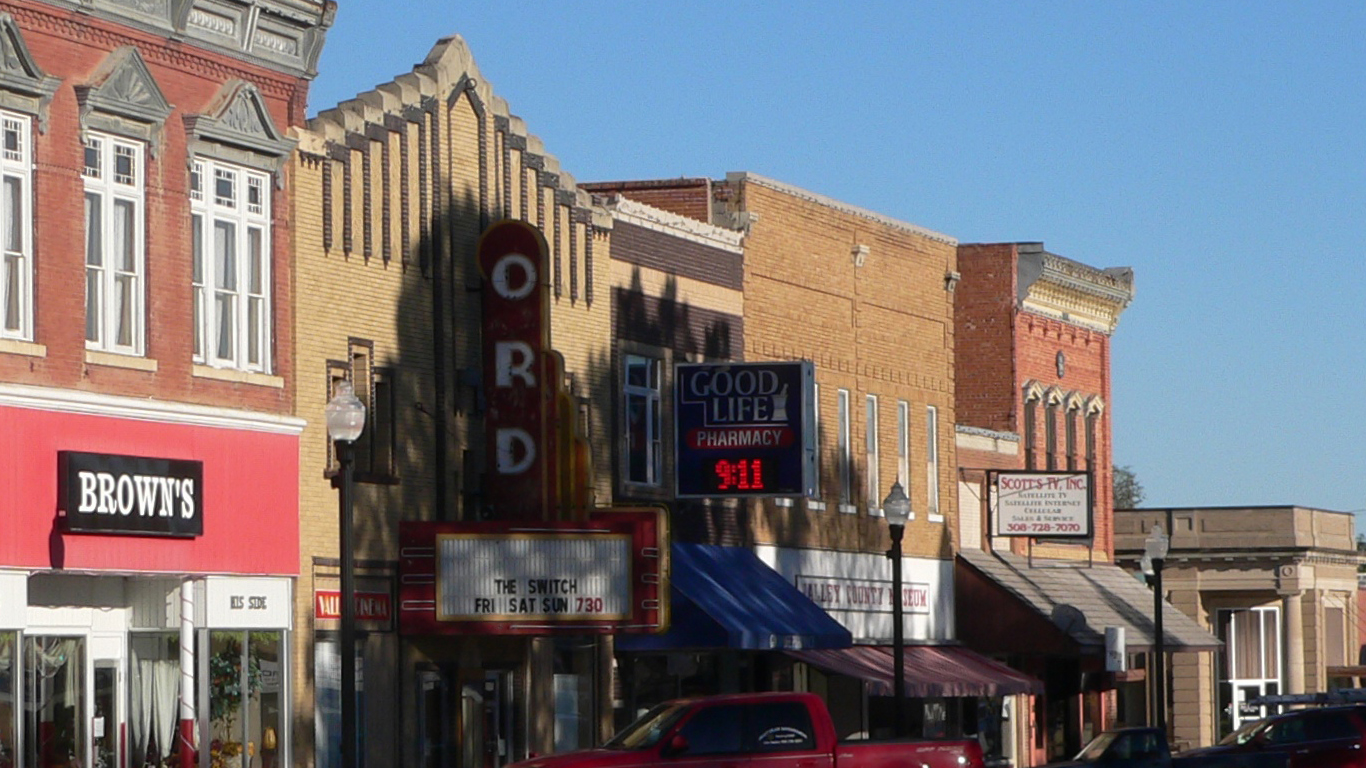
13. Nebraska
> WalletHub score: 57.35
> Top metric: Civic Engagement (#6 best in the nation)
> Millennials: 389,407 — 14th fewest

12. New York
> WalletHub score: 57.35
> Top metric: Quality of Life (#2 best in the nation)
> Millennials: 4,121,641 — 3rd most
[in-text-ad-2]

11. Virginia
> WalletHub score: 58.02
> Top metric: Civic Engagement (#2 best in the nation)
> Millennials: 1,768,034 — 11th most

10. Illinois
> WalletHub score: 58.09
> Top metric: Affordability (#4 best in the nation)
> Millennials: 2,591,190 — 5th most
[in-text-ad]

9. Pennsylvania
> WalletHub score: 58.43
> Top metric: Civic Engagement (#9 best in the nation)
> Millennials: 2,501,404 — 6th most

8. Wisconsin
> WalletHub score: 60.69
> Top metric: Civic Engagement (#3 best in the nation)
> Millennials: 1,114,706 — 22nd most

7. North Dakota
> WalletHub score: 61.58
> Top metric: Affordability (#2 best in the nation)
> Millennials: 171,736 — 4th fewest
[in-text-ad-2]

6. Colorado
> WalletHub score: 61.70
> Top metric: Quality of Life (#3 best in the nation)
> Millennials: 1,339,725 — 17th most

5. Minnesota
> WalletHub score: 62.10
> Top metric: Quality of Life (#4 best in the nation)
> Millennials: 1,150,923 — 21st most
[in-text-ad]
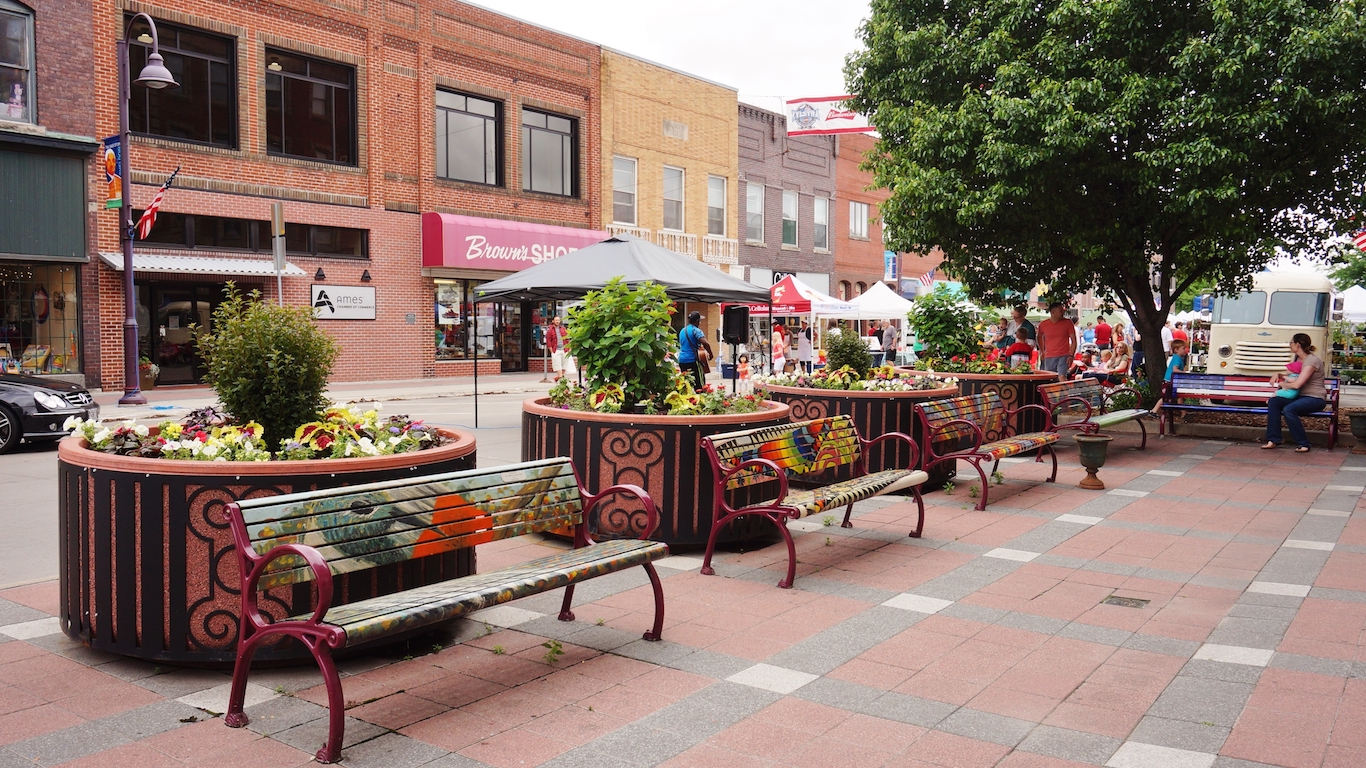
4. Iowa
> WalletHub score: 62.47
> Top metric: Affordability (#7 best in the nation)
> Millennials: 604,882 — 19th fewest

3. Massachusetts
> WalletHub score: 64.02
> Top metric: Education & Health (#2 best in the nation)
> Millennials: 1,431,870 — 15th most

2. Utah
> WalletHub score: 64.58
> Top metric: Economic Health (#1 best in the nation)
> Millennials: 704,125 — 22nd fewest
[in-text-ad-2]

1. Washington
> WalletHub score: 68.01
> Top metric: Affordability (#1 best in the nation)
> Millennials: 1,707,877 — 13th most
The Average American Has No Idea How Much Money You Can Make Today (Sponsor)
The last few years made people forget how much banks and CD’s can pay. Meanwhile, interest rates have spiked and many can afford to pay you much more, but most are keeping yields low and hoping you won’t notice.
But there is good news. To win qualified customers, some accounts are paying almost 10x the national average! That’s an incredible way to keep your money safe and earn more at the same time. Our top pick for high yield savings accounts includes other benefits as well. You can earn up to 3.80% with a Checking & Savings Account today Sign up and get up to $300 with direct deposit. No account fees. FDIC Insured.
Click here to see how much more you could be earning on your savings today. It takes just a few minutes to open an account to make your money work for you.
Our top pick for high yield savings accounts includes other benefits as well. You can earn up to 4.00% with a Checking & Savings Account from Sofi. Sign up and get up to $300 with direct deposit. No account fees. FDIC Insured.
Thank you for reading! Have some feedback for us?
Contact the 24/7 Wall St. editorial team.
 24/7 Wall St.
24/7 Wall St. 24/7 Wall St.
24/7 Wall St. 24/7 Wall St.
24/7 Wall St.
